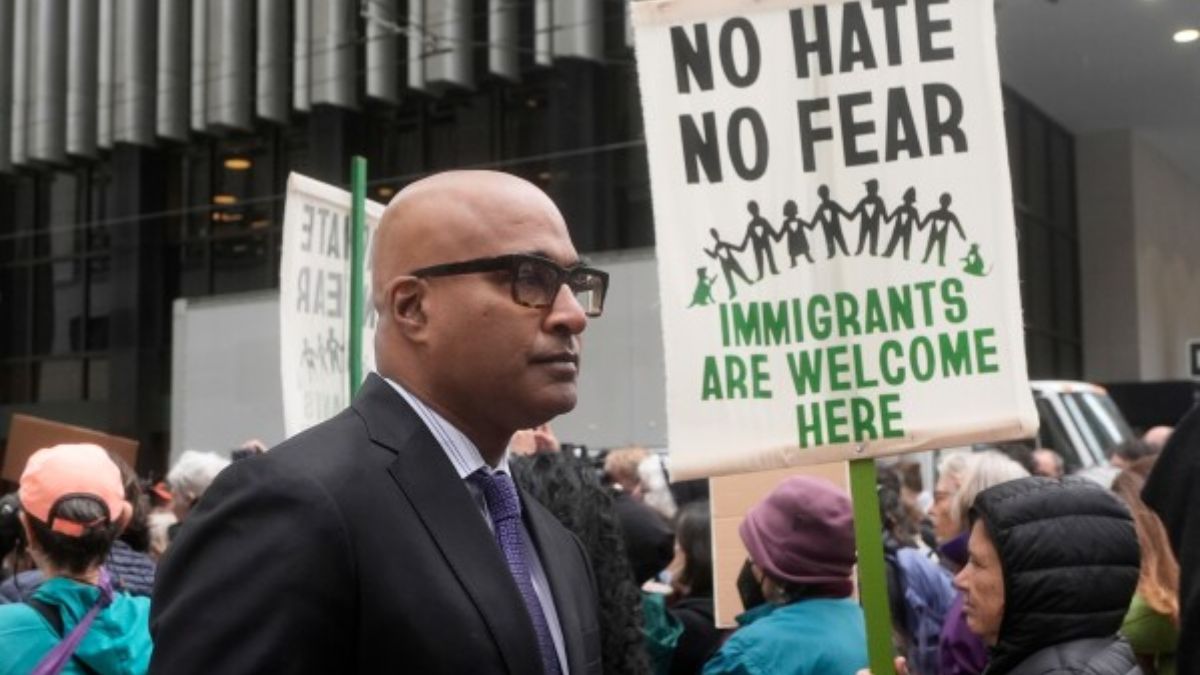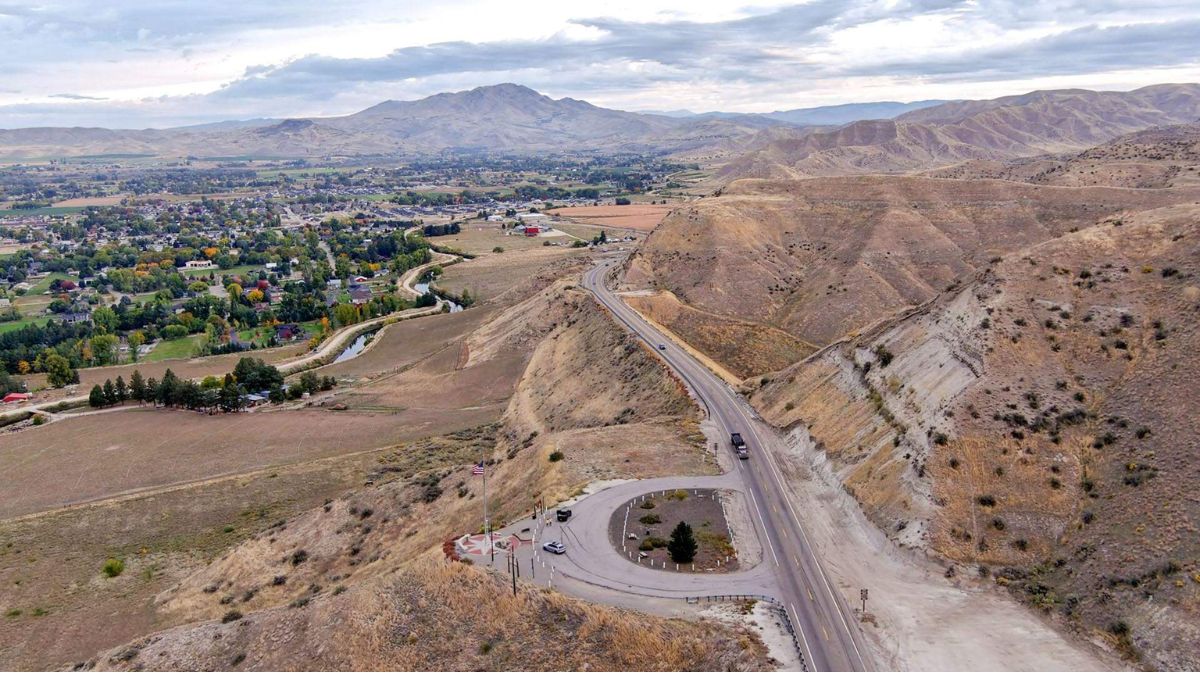Over the past several months, attorney Nicholas Pierce — who specialises in asylum, refugee, and deportation-defence law in Colorado’s Front Range region — has found himself constantly striving to catch up. The federal government’s immigration policies and executive orders, arriving at a near-daily pace, have been difficult to track and interpret.
In a recent interview, Pierce addressed the latest initiative by U.S. Immigration and Customs Enforcement (ICE), described by activists as “Freaky Friday.” Under this measure, unaccompanied immigrant children were allegedly offered cash incentives to self-deport, possibly forfeiting their right to hearings.
Earlier that day, a local human-services agency contacted him, asking how this development would affect the children under their care. He was unable to respond immediately — instead, he had to consult with sources, including an ICE contact, to clarify the situation.
He remarked:
“It is, in a lot of ways, much worse than what I had anticipated, much faster than I had anticipated.”
He reflected on his earlier experience as an immigration lawyer during the first Donald Trump administration, noting that there were then significantly more checks and balances within the system.
Rising Case Load and Community Impact
At his Denver-based law firm, Amistad Law Firm, Pierce is managing approximately 400 cases. Many involve families and communities coping with the fallout from policy shifts:
- Termination of programs such as Temporary Protected Status (TPS) for Venezuelans, many of whom sought refuge in Colorado.
- Immigrants opting to go underground for fear of detention when attending asylum interviews.
- Legal status being stripped or placed in dire jeopardy.
Pierce, a former member of the U.S. Army Reserve, is supported in part by the Colorado Refugee Support Program (state funding). He is among dozens of Coloradans polled by Colorado Public Radio (CPR News) and the Colorado News Collaborative who have expressed either outright opposition or deep frustration with aspects of the Trump administration’s strategy to shut the southern border and reduce undocumented immigration.
A minority of respondents voiced support, arguing that stricter immigration enforcement is needed to free public resources for housing, Medicaid, or to shield the country from perceived socialist threats.
Enforcement Tactics and Policy Reversals
Since the start of the year, enforcement has ramped up: immigration raids have intensified across U.S. cities, including Colorado; the National Guard has been deployed in places like Los Angeles and Washington D.C. to back ICE; and key policies from the Joe Biden era have been reversed — such as allowing arrests at schools and churches.
What Coloradans Are Saying
A survey of nearly 400 Colorado residents revealed that even among those who accepted the administration’s goals, many opposed current enforcement tactics. Concerns included:
- Violations of due process by federal agents.
- Agents focusing on non-violent immigrants rather than the “worst of the worst” criminals.
A respondent from Grand Junction commented:
“I have no problem with deporting those convicted of felonies, but ambushing families is despicable.”
From Broomfield:
“I am in favour of the overall goal, but I do take issue with some of the practices. Treat people as human beings, even if they are criminals.”
In Durango, one man graded the areas: border-closure efforts an A+, deporting criminals a C-, visa restrictions a D-, ICE tactics an F, and described the National Guard involvement as illegal.
“Deport criminals not workers,” said a woman in Durango. She added that ICE’s “unmarked cars, civilian clothes, refusal to identify themselves should be eliminated.”
And in Colorado Springs:
“It’s a waste of time to deport people contributing to the economy… I’m more concerned with the affordability of housing and health care.”
“The response has been too extreme and brutal… It targets too many law-abiding, legal U.S. residents, denying due process to detainees.”
An Evergreen resident, Norman Sherbert, took a different view, believing the administration was fulfilling its election promise:
“I’m not here to tell the government how to do their job… but 11 or 12 million illegal immigrants… seeing children without guardianship being used to gain entrance… is not good policy.”
He viewed the stringent measures as necessary given limited time and resources.
At a flea market in Colorado Springs, JoAnn Antaya — a German-born American — recalled her own cultural adjustment and lamented society’s loss of empathy:
“We do not care about our fellow man… It’s like they’re not compromising… They’re just combative.”
She didn’t agree with the administration’s tactics.
Polling Insights
A statewide poll by the Colorado Health Foundation (CHF) of over 2,300 residents found:
- Roughly half of respondents identified “illegal immigration” as a major concern, though the figure varied: 39 % rural vs 65 % suburban vs 39 % urban.
- On the Eastern Plains, 90 % believed illegal immigration was a problem; in Denver metro it was 46 %.
- 20 % called mistreatment of immigrants “extremely serious,” while 42 % said it was “not too serious.”
- Concern levels: 44 % urban respondents, 30 % suburban and 23 % rural viewed mistreatment as “extremely/very serious.”
Senior researcher Lucia Del Puppo said regional context, urban-rural differences and partisan issues shaped opinions. CHF spokesperson Katie Peshek noted that with a third of respondents citing government and politics as Colorado’s biggest challenge, state leaders need to focus on immigration, cost of living and housing.
Nationally, a recent Gallup poll found only 30 % of Americans want immigration reduced — down fifteen points since the previous year. The New York Times/Sienna poll of registered voters showed 51 % felt the government was deporting people who “should be deported,” while 42 % believed it was deporting the wrong individuals. And 53 % believed deportation procedures were unfair (versus 44 % who thought they were mostly fair).
Colorado Leadership and Federal Conflict
State leaders in Colorado have reacted in various ways to federal immigration enforcement. Phil Weiser, Attorney General of Colorado, has used his office to challenge federal immigration actions — including defending tuition rights for non-citizen students, and suing a sheriff’s deputy over ICE involvement in a traffic stop that detained a college student.
In spring, the state legislature passed a bill protecting undocumented immigrants from federal exposure. Over the summer, Democratic members of Congress visited Colorado’s sole immigration centre in Aurora, leaving with more questions than answers.
Colorado is at risk of losing federal funding and is being sued by the federal government over “sanctuary” policies, but Democratic state leaders continue to resist pressure, arguing that immigration enforcement is not their responsibility.
However, coordination between agencies persists: even though state law restricts when officials can cooperate with ICE, state agencies this year have provided Coloradans’ personal data to federal authorities under subpoena. These actions, during the Jared Polis administration, have stirred controversy among Democrats and immigrant-rights advocates.
What’s Coming Next
Despite laws preventing local law-enforcement from aiding federal agents, targeted immigration raids continue across Colorado, including outside metro areas. Recent incidents reported by local media include:
- In Alamosa: ICE detained a family with a baby inside a vehicle at gunpoint, with a car window smashed.
- In Routt County: ICE vehicles blocked a county commissioner.
For Pierce, the challenge isn’t only new policies: he is also witnessing immigration-court judges resigning or being removed, which slows case processing. Clients are being transferred out-of-state detention centres, making it hard for them to connect with legal counsel and making the risk of rapid deportation much higher.
“So when it comes to hurting people, the system’s gotten a lot faster. When it’s come to helping people, the system’s gotten a lot slower,” he said.
Most of Pierce’s clients are Afghan men who fought alongside the U.S. military in the Afghanistan War and are now navigating the path to legal residency. Many filed petitions in 2022 or 2023 but still have no court date. With the re-imposition this summer of the so-called “Muslim ban,” family reunification has become extremely difficult. These men say the policies break a promise made by the U.S. government when they fought alongside American troops.
They face two grim choices: risk returning to dangerous conflict zones with their families, or remain in the U.S. separated and uncertain about when — or whether — their loved ones may join them.
Pierce says the situation has become so dire that he is advising clients for the first time to seek asylum in Argentina or Chile — and is starting to offer powers of attorney so U.S. citizen relatives can take control of bank accounts and assets if their loved ones are quickly deported.
“I’ve dedicated my life to this, but the good legal advice has become, ‘Hide, or go somewhere else.’”
The immigration-defence field in Colorado is facing a dramatic transformation. As federal enforcement intensifies and due-process protections erode, lawyers like Nicholas Pierce are navigating an ever-shifting terrain. Communities, families and individuals — especially those who came to the U.S. seeking refuge or who fought alongside the country — are feeling the pressure.
At the same time, public opinion and state responses are varied and complex, reflecting a wide array of motivations and concerns. The balance between border security, human rights and the legal system is under strain — and the ripple effects are being felt not only in Colorado but across the nation.



